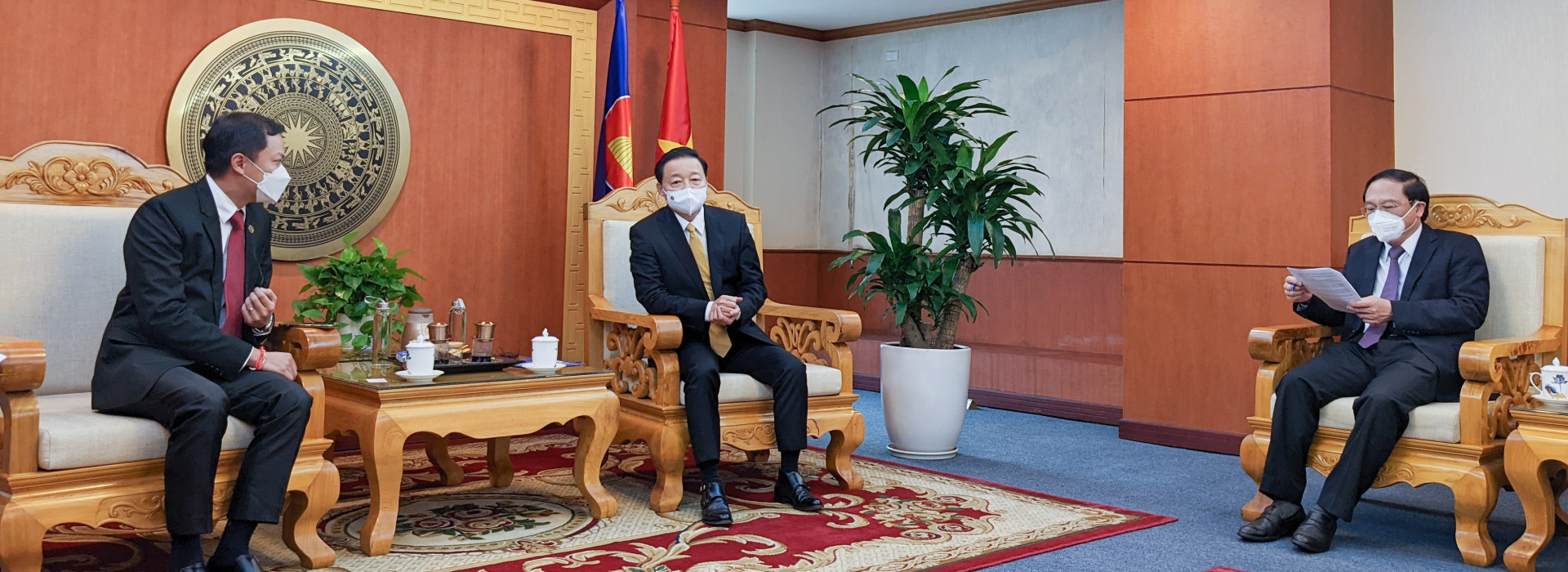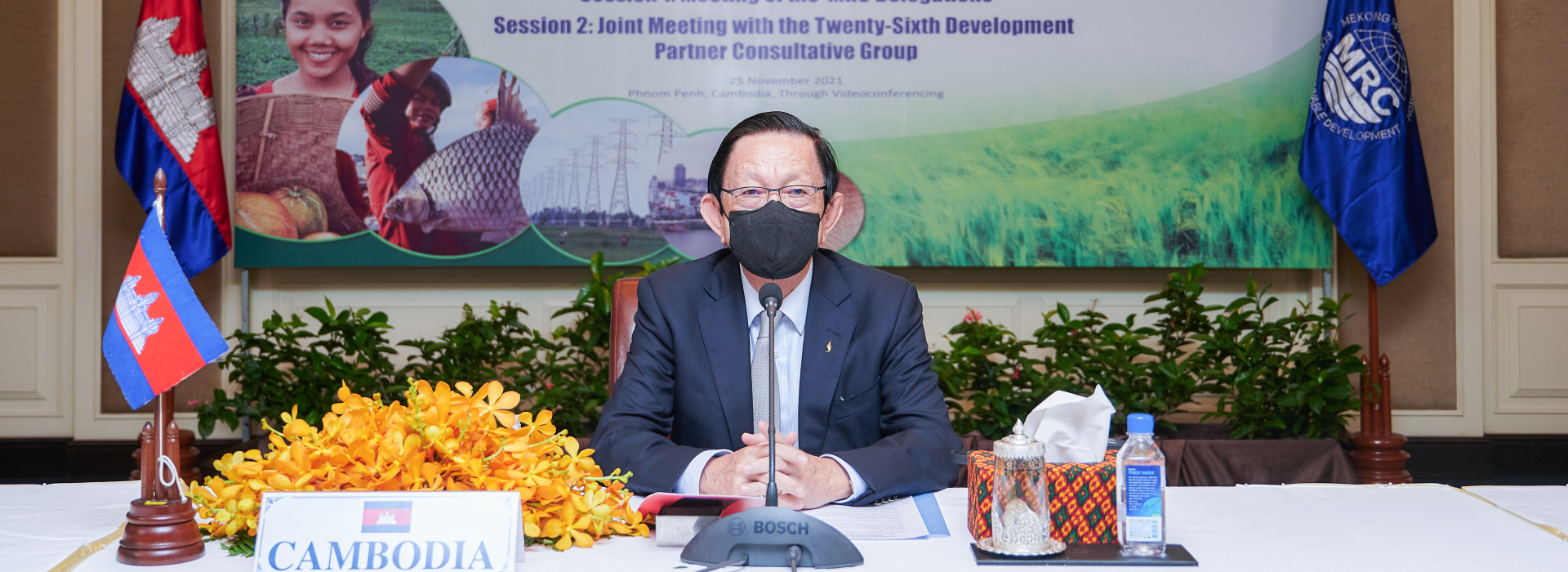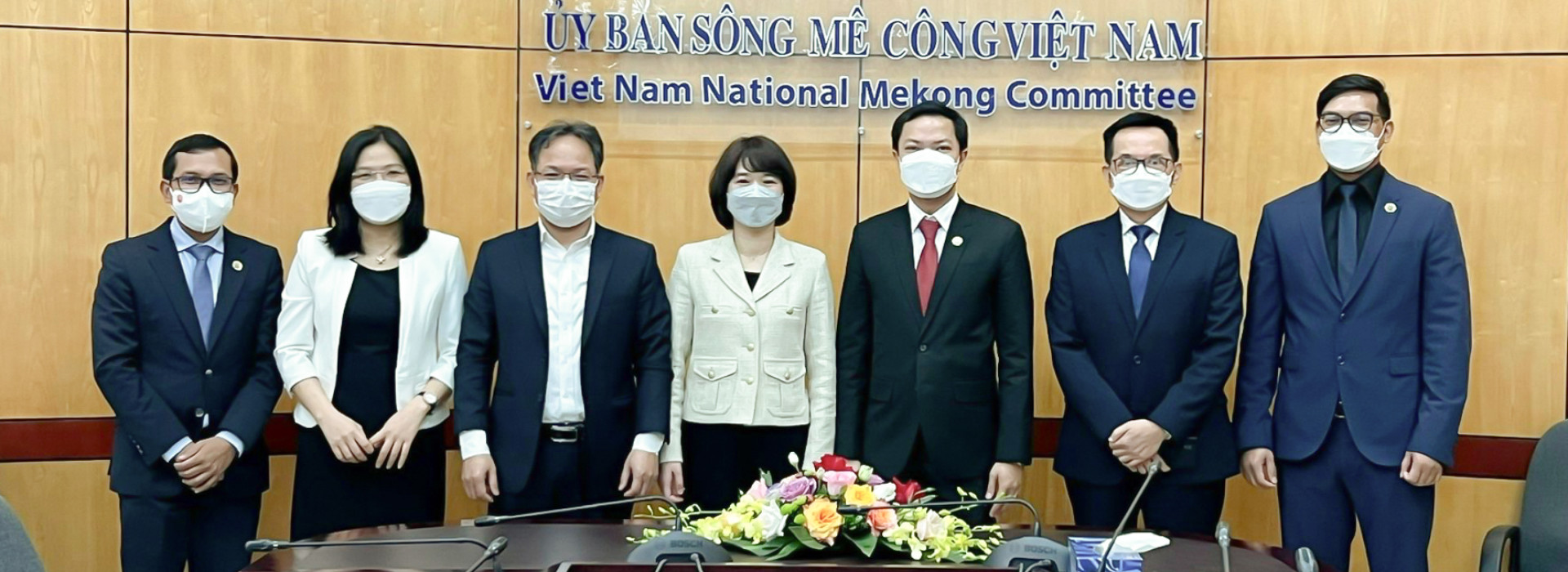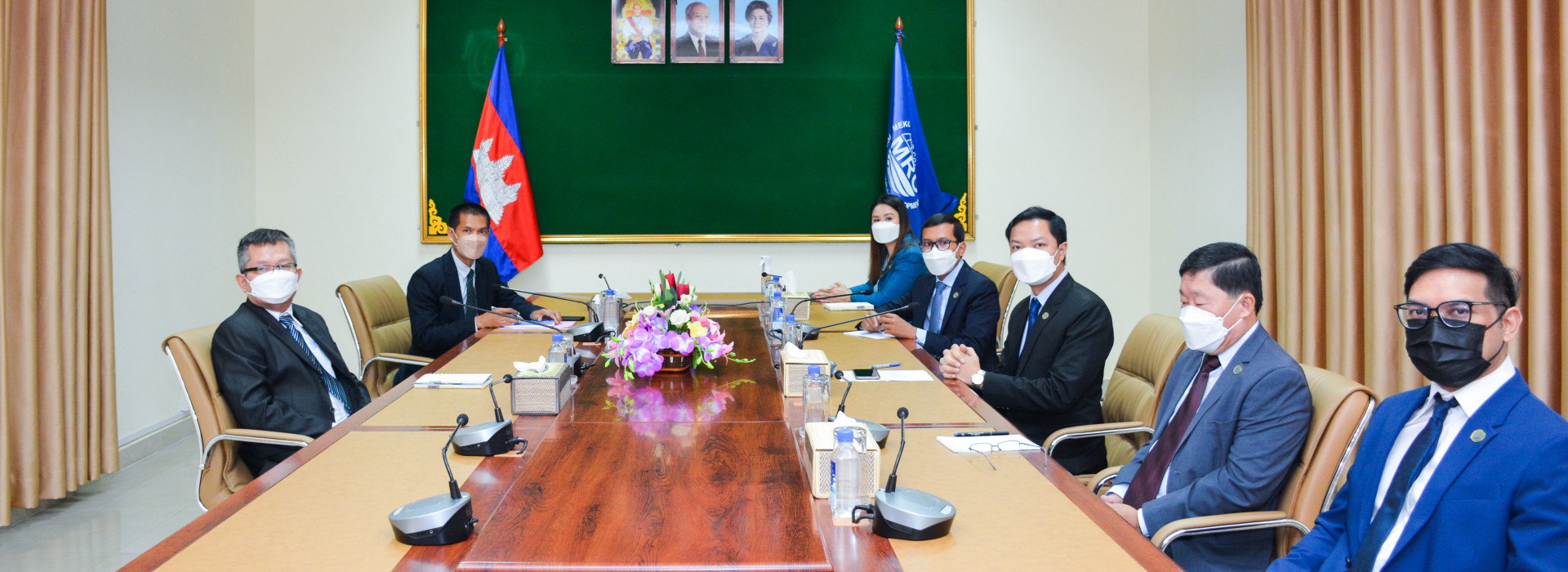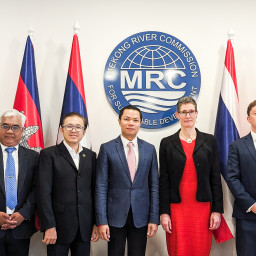Mekong River leaders urge cooperation, protection when meeting new MRC CEO
Vientiane, Lao PDR, 14 March 2022 — To better protect Southeast Asia’s largest waterway, the new CEO of the Mekong River Commission (MRC) Secretariat is now making the rounds to hear directly from Member Countries about their priorities – especially, to minimize growing threats to lives and livelihoods.
Dr Anoulak Kittikhoun, who was elected in January as the MRC’s first Laotian CEO, visited Cambodia and Viet Nam this month to speak face-to-face with their top officials about Mekong cooperation. Beyond a desire to deepen regional and international partnership, a crucial priority is to expand efforts to monitor and measure how economic development, water-infrastructure projects and climate change – including more floods and drought – affect the many millions who dwell in the Lower Mekong River Basin.
“This open discussion will help me implement a more impactful programme of work for the Basin, closely aligned with regional and national priorities,” said Dr Anoulak, who worked more than a decade in the MRC Secretariat before being unanimously elected in January as the third riparian CEO. “We must be innovative, as the MRC evolves into a strong regional player equipped with modern technology and state-of-the-art knowledge, providing timely services to the countries and their peoples.”
The MRC is comprised of the four countries that directly benefit from Mekong-related developments – Cambodia, Lao PDR, Thailand and Viet Nam – as well as special status for the two northern neighbors upriver, China and Myanmar. Each of the six has its own national interests, specific priorities and unique challenges, making cooperation complex but rewarding.
On March 2, Dr Anoulak met in Phnom Penh with Mr Lim Kean Hor, Chairperson of the Cambodia National Mekong Committee, and Mr Te Navuth, the committee’s Permanent Vice Chairperson. Lim articulated the need to monitor and share more hydrological data, to accurately gauge how low or high water-flow affects the region’s socio-economic well-being. To provide a clearer picture, in 2020 China began sharing its dry-season data, in addition to wet-season data. Yet the MRC should take the lead in producing a more complete picture, by installing additional monitoring stations on the Mekong’s tributaries, too.
“With more data, over a longer period of time, we can establish clear trends, anticipate future patterns and implement an effective early-warning system,” said Lim, who is Cambodia’s Minister of Water Resources and Meteorology and the MRC Council Member for Cambodia. “With common understanding, we can take more impactful short- and medium-term measures.”
Then on March 10, Dr Anoulak met in Hanoi with Dr Tran Hong Ha, the Vietnamese Minister of Natural Resources and Environment, and his Deputy Minister, Mr Le Cong Thanh. Minister Ha, who serves as the MRC Council Member for Viet Nam, urged the MRC to explore more environmentally-friendly energy solutions – in addition to the current use of hydropower – and to recommend major, forward-looking projects in which MRC members cooperate to address future challenges.
Like Minister Lim Kean Hor expressed before him, Minister Ha also emphasized the steady strengthening of ties among MRC members, as well as partners like the Ayeyawady-Chao Phraya-Mekong Economic Cooperation Strategy (ACMECS), the Lancang-Mekong Cooperation (LMC), the Association of Southeast Asian Nations (ASEAN), and individual countries such as South Korea, the US, Australia and Japan.
“We want to ensure that this cooperation is here to stay, because it’s what makes our Basin connected, prosperous and safe,” said Minister Ha. “In the process, the MRC will continue to serve as a model for other river basins when it comes to transboundary water cooperation.”
Dr Anoulak has already met with Laotian leaders in the capital Vientiane, which is where the MRC is headquartered. Looking forward, his team is now planning a visit to Bangkok, to meet Thai representatives, as well as a trip to Beijing, to convene with Chinese counterparts.
Read the news in Khmer, Lao, Thai or Vietnamese.
Note to Editors:
The MRC is an intergovernmental organization established in 1995 to boost regional dialogue and cooperation in the Lower Mekong River Basin. Based on the Mekong Agreement among Cambodia, Lao PDR, Thailand and Viet Nam, the MRC serves as a regional platform for water diplomacy and knowledge hub – to manage water resources and support sustainable development of the region.
###
